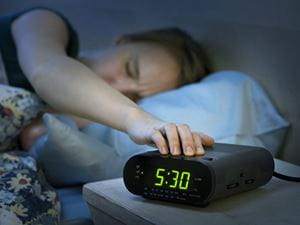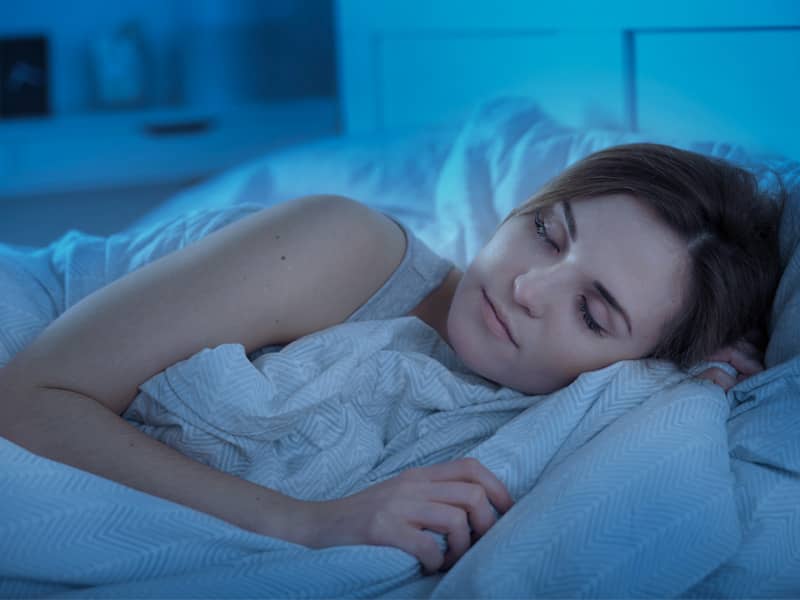
We’ve all heard the saying, “There’s nothing better than a good night’s sleep.” For years, doctors have praised the benefits of a good night’s sleep. Even if you manage to carve out time in your schedule to get enough sleep, you may have a hard time nodding off or waking up during the night.
However, it may comfort you to know that you wouldn’t be the only one. According to a 2019 study, sleep disturbance has become a hidden public health epidemic in recent years. Shockingly, this may have a lot to do with what you’re doing while awake. Here are some everyday daytime habits that may be sabotaging your sleep.
Blue light and daylight.
Getting daylight plays a large part in maintaining the circadian rhythm, the internal regulator of sleep and wakefulness, operating correctly. According to Mairav Cohen-Zion, the chief science officer of dayzz, “Sunlight is one of the most important cues that signal [to] our brain that it’s time for us to be awake while diminishing amounts of light signal that it’s time for our body to get ready for sleep.”
So, how much sunlight do you need? Professionals recommend that you get at least 20 to 30 minutes of daylight in the morning and avoid blue light two hours before bed. This tactic can help you invigorate your sleep-wake cycle and help you feel awake or sleep at the right time and place.
Interestingly, daytime blue light isn’t an issue and can even help you get to sleep at night. According to a study in 2008, getting more blue light when the sun is up can help you feel more awake during the day and sleepier in the evening.
Samina Ahmed Jauregui, a sleep psychologist, says, “Too much blue light during the day has no impact on our sleep cycle. However, too much blue light in the evening can delay the onset of melatonin.”
Melatonin is a hormone that lets your body know it’s time to sleep. In other words, using your phone in the evening can trick the body into thinking it isn’t bedtime. Melatonin is necessary to help us fall asleep. You’re more likely to be up longer if delayed by blue light.
Thinking about your to-do list.
Worrying about the matters on your to-do list can keep the brain excessively active in the evening, making it hard to sleep. To help alleviate this, a 2017 study found that writing down your to-do list can help you feel relaxed and in control, leading to better sleep quality.
Instead of pondering, try putting pen to paper. This strategy can give you a sense of closure. Since you’ve taken action, you can get your rest.
Bed habits.
In 2020, Best Mattress Brand surveyed 500 people who made their bed in the morning and 500 who didn’t. According to the survey, participants who made their beds were more productive, ate healthier, and felt more accomplished at the end of the day. On average, bed-makers got around 20 minutes more sleep, had less trouble falling asleep, and were prone to feel rested in the morning.
A certified sleep coach, Rosie Osmun, explains, “Making your bed in the morning doesn’t directly mean you’ll sleep better, but it is most definitely a part of the bigger picture.”
Rather than directly affecting your sleep, making your bed may be a part of a more extensive routine that signals to your brain when it’s time to sleep and when it’s not. “Generally, you sleep better when you’ve had a good day,” Osmun says. “Beginning your day by making your bed puts you into a more productive mood, which is likely to have a domino effect on your whole day, trickling right down to your evening routine when you get back into bed.”
Osmun also adds that it’s much nicer to get into a made bed at the end of the day. Try making your bed every morning. It may also help if you avoid hanging out in your bed during the day. This tactic can confuse your body into connecting your bed with wakefulness and interrupt your natural circadian rhythm. Instead, limit time in the bed to two things: sleep and intimacy.
Bedtime routine.
A wind-down routine can go a long way toward getting you the restful sleep you need. There are numerous ways to tell your brain that it’s time to wind down before going to bed, like putting on calm music, dimming the lights, meditating, and turning off your electronics. There are many ways to create a bedtime routine that works for you.
Hot sleeping space.
It’s hard to sleep when the body is too hot. Our body temperature tends to rise as we get deeper and deeper into our sleep. A warm sleep environment will likely feel uncomfortable and interrupt the sleep cycle with restless sleep or repeated awakenings.
Keeping a window open or a fan going can go a long way toward cooling down your space. Though you don’t have to keep your room cool all day, you can take a moment in the evening to get the temperature lower before bedtime.
Hot bath or shower.
You may think that a hot bath right before bed will help you slow down at the end of the day, but it may make it harder to fall asleep. A hot shower or bath will cause your body temperature to rise.
The optimum temperature for showering or bathing before sleeping is lukewarm. This temperature is best because, to sleep, your body temperature needs to drop, hence why you may struggle to sleep when it’s too hot.
We all know that a good night’s sleep is key to starting your day off on the right foot. There are many simple tricks you can use to tweak your daytime habits for better sleep. By adding these techniques to your routine, you’ll be able to sleep like a baby throughout the night. However, if these lifestyle shifts don’t help, speak with a doctor about other solutions to help you establish a consistent, healthy sleep schedule.

